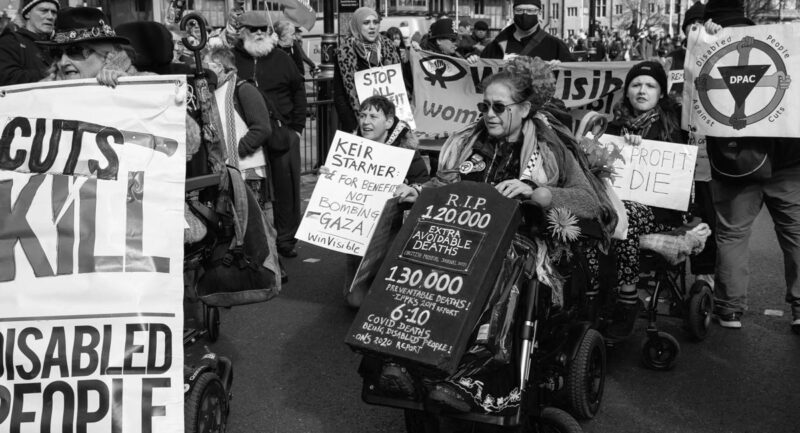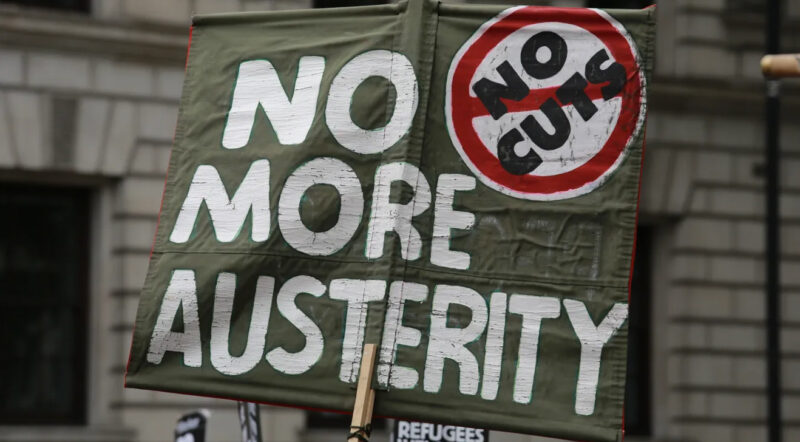PCS: New strategy needed
By Rebecca Anderson
 The issue of overriding importance at this year’s conference of the Public and Commercial Services (PCS) union will again be the battle to save our pensions. The government has now implemented the changes to our pensions – we will work longer, pay more and get less – but this does mean the fight is over.
The issue of overriding importance at this year’s conference of the Public and Commercial Services (PCS) union will again be the battle to save our pensions. The government has now implemented the changes to our pensions – we will work longer, pay more and get less – but this does mean the fight is over.
Last year we voted to ballot for strike action on 30 June and this year there are again a number of motions tabled on this issue. All propose a way forward. The National Executive Committee’s (NEC) proposal will commit us to continuing to campaign against the changes alongside a coalition of other unions but in terms of industrial action it only supports departmental or local action.
If the National Union of Teachers (NUT) agrees to strike at the end of June, then it is very likely that the NEC will bring PCS members out alongside them. But this motion leaves the question of whether or not we strike again entirely in the hands of the NEC, which refused to call action on 28 March and has a track record of pulling back at the crucial moment. Surely conference and a directly elected strike leadership should control the action, not a standing committee.
Name the day
The only other mention of industrial action is in a motion from my branch in the Ministry of Justice (MoJ). This calls on the NEC to “name the day for another strike within one month of this conference, coordinating with other unions if possible but alone if necessary” and “publicly call on all public sector unions to join the strike, and any private sector unions that also face attacks on their pensions”.
Unison Health members have just rejected the government’s offer but their leaders are refusing to call another strike. PCS should openly demand Unison leaders call another pensions strike – and appeal directly to their members if they refuse.
Conference motions paint a picture of a workforce facing cuts and sell-offs. The Tories are threatening to privatise Criminal Enforcement in the MOJ, oblivious to the horror stories of G4S and Serco’s abuse of powers over asylum seekers and prisoners. The Coalition also wants to abolish the Gangmasters Licensing Authority and the Employment Standards Inspectorate, which speaks volumes about their attitude to workers.
The other major issue facing PCS member is the prospect of a one per cent pay cap and the introduction of regional pay. Over four years the average civil servant has lost 15 per cent of their wages. Regional pay will add to this impoverishment through paying staff from poorer areas lower wages and further impede collective bargaining.
Serwotka losing his shine
Over the past few months and certainly since the aborted strike on 28 March, some of the shine has rubbed off the PCS leadership. Their strategy for defending our pensions, pay and jobs in the face of brutal Tory austerity has stalled in a cul-de-sac. A number of attacks from the government have gone unanswered, like the tens of thousands of voluntary redundancies that have crippled services and put enormous pressure on remaining staff, or the huge reduction in our redundancy pay – you now get more money for voluntary redundancy than for compulsory.
Since last conference we have only taken two days of strike action in response to the biggest attacks ever faced by our union and by the whole public sector. The NEC was right to try and build a coalition of all unions facing these attacks, but must have known and should have prepared for the right wing betrayal.
Over 100 delegates to the recent NUT conference met to discuss the state of the pensions dispute and to organise from below. Delegates to the PCS conference need to do the same. Let’s use the conference to pass the best motions and meet to discuss strategy for resisting the cuts. Let’s follow the example of the sparks and NUT members and start to build a rank and file network.






